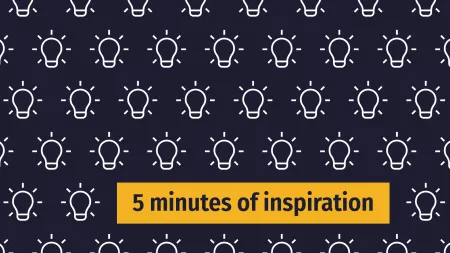“I’m now a better person, stronger and empowered. I’m not afraid of tomorrow because I know I can do it. I have a mission now. I must stand by my community women to support them and show them that if I did it, all of them can, too,” said Fadah, a woman entrepreneur.
“I have learned so much. We finally live in a nice apartment, and I can pay for my children’s school and medical bills,” said Amira, who received a $3,000 grant and some business training that she used to set up her own sewing workshop.
That’s the power of supporting women to take charge and lead in their own lives, and in their communities. They find ways not just to improve their own conditions, but to stand up for others. It would be remarkable under any circumstances, but for Syrian women living through the COVID-19 crisis, it’s a stunning achievement.
Women can’t do it alone; men make a difference, too. Mohamed says, “I feel more confident about advocating for equal rights and am more interested in justice issues. I’ve also started to think about how people with disabilities feel and how to communicate with them. I hope that the concept of inclusion will become more of a reality in our society so everyone can live in peace, security, and stability.”
Fadah, Amira, and Mohamed are not alone. They are part of the Promoting Economic Resilience of Syrian Women (PERSEVERE) project, which is reaching 133,955 people (72,052 of them women) with $7 million in funding from Global Affairs Canada. CARE is partnering with the Syrian Resilience Consortium and Humanity & Inclusion to deliver the project from 2018-2021.
What has changed?
- People are changing their attitudes. 79% of people support equality regardless of gender, age, and disability—a 29% increase since 2018.
- People are acting to create equality. 2,904 people report taking action to improve equality and inclusion, from changing event locations to make them more accessible to going to local governments and asking that they change services to make them more useful for people who cannot access them.
- Women are earning more money. Women’s income more than doubled, from $80 to $164 for women who got training. 80% of women are contributing more to the family income.
- Businesses are stronger. There was a 33% in crease in women who say their businesses are functioning well, even with all the restrictions from COVID-19. 75% of women feel that they have stronger business skills with the project.
- Women are more involved with decisions. 86% of women say they are participating equally in decisions at home, more than 3 times the numbers when the project started. Nadia says, “Now I feel a lot more powerful and self-confident. I am running my own sewing workshop and am earning my own money. I am as much a decision-maker as my husband now and am financially independent.” It’s not just at home—18% of women are participating in community decisions, when zero were at the start of the project.
- People are safer. 98% of people are reporting safe behaviors to avoid hazards in their communities, from explosive devices from the conflict to protecting themselves of COVID-19.
- Organizations are more inclusive. 100% of staff in community organizations lowering barriers to equity and inclusion in their services. They’re even applying those ideas to projects outside of PERSEVERE. IRC changed their project to suit the needs of women, elderly and people with disabilities by allowing participants to work from home to reduce COVID-19 exposure. These adaptations also resulted in an increased number of women, elderly and persons with disabilities wanting to participate, because working from home removes many of the physical and social barriers preventing their participation.
How did it happen?
- Support women-led businesses. The project helped 299 women complete online training courses, gave grants of $3,000 each to 46 women-led businesses, and trained 24 trainers who could support women-led businesses.
- Focus on safety. The project provided training to 55,935 people about the dangers of explosive devices. When COVID-19 struck, they also started adding training on COVID-19 safety.
- Adapt to COVID. The project quickly started moving activities online, to radios, or changing in-person trainings to keep people safe. They started doing door-to-door and socially distanced conversations rather than large group meetings. This meant the training and results actually got better. With smaller training groups, people got more tailored help in shorter amounts of time, so they didn’t have to leave their businesses for long, and could learn what they needed most.
- Support people with disabilities. The project did a mapping to understand who in the community had disabilities and what those people needed most. Then they changed the program and services to make sure those people could access what they needed.
- Embrace local leadership. The project worked with Inclusion Ambassadors, where people with disabilities and their allies created a cadre of local advocates to raise awareness with community members, local organizations, and local authorities.
- Raise awareness. The project trained 3,028 community members on Gender, Age, and Disability and issues of equity and inclusion.
Want to learn more?
Check out the project’s annual report.
